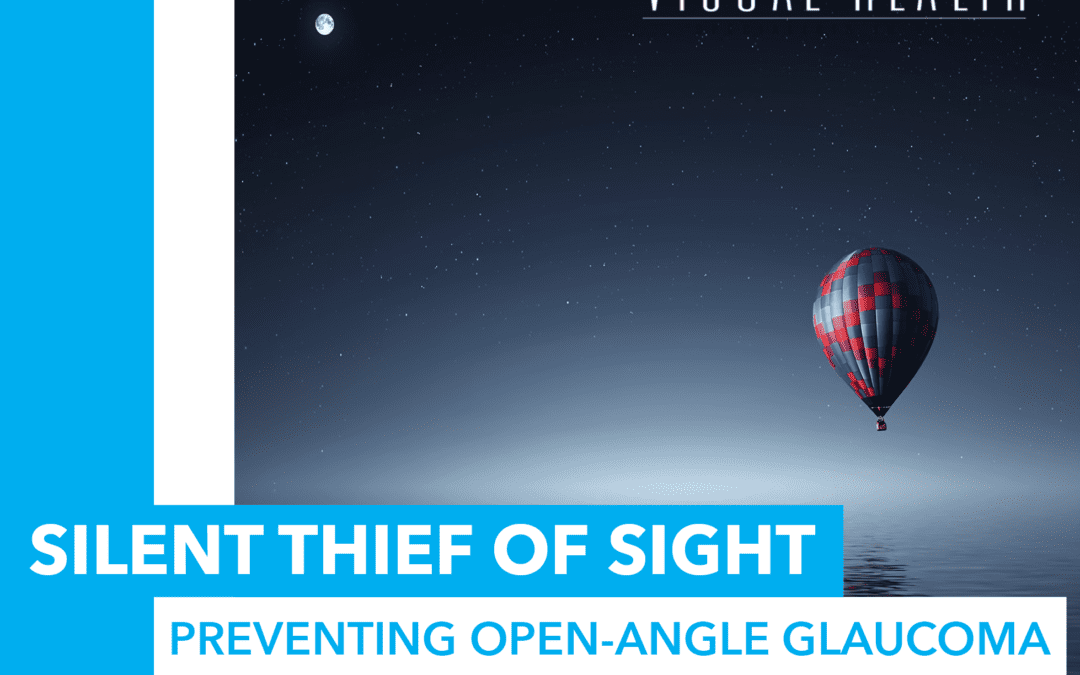Although the Latin definition of the word glaucoma- an opacity of the human lens- can be confused with the common cataract, glaucoma really describes a group of eye diseases which affect the optic nerve. Left untreated glaucoma can cause permanent vision loss and even blindness.
The most common type of glaucoma is open-angle glaucoma which makes up about 80% of all glaucoma cases. Open-angle glaucoma is painless and often vision loss occurs very gradually. This loss can be so gradual that it is possible to not even realize that you have lost any vision until over 80% of your vision and visual field is gone. Hence there is the term: the silent thief of sight.
While open angle-glaucoma is not preventable, vision loss can be prevented by early detection and treatment. In most cases, a simple dilated eye exam and intraocular pressure test every one to two years will ensure you against vision loss from glaucoma. Other more extensive tests may also be required. Fortunately, the doctors at Visual Health and Surgical Center have all the latest technology and expertise to diagnose glaucoma.
Genetics and ethnicity also play a role in glaucoma. Africans and African-Americans have the highest prevalence of open-angle glaucoma, so those with a family history of glaucoma should be checked more frequently. The normal cause of open-angle glaucoma is a slightly clogged drainage system, somewhat analogous to a septic system drain field. Fortunately in most cases, open-angle glaucoma can be treated with eye drops. In many cases, only one drop of a prostaglandin analog such as Lumigan each night will do the trick. Additionally, multiple eye drop medications may be needed. Laser treatments, often in conjunction with eye drops are used in approximately 20% of all glaucoma treatment. Rarely, (about 5%) glaucoma surgery such as a trabeculectomy may be required.
The take-home message to this post is the familiar adage, “an ounce of prevention is worth a pound of cure”, or in the case of your visual health: a regular eye examination with dilation of the pupils will in most cases detect glaucoma or detect the need to investigate the possibility of glaucoma with further testing. Please visit the patient education area of our web site for more information or speak to one of our Visual Health doctors.
Richard Scott Hearing, O.D., F.A.A.O


